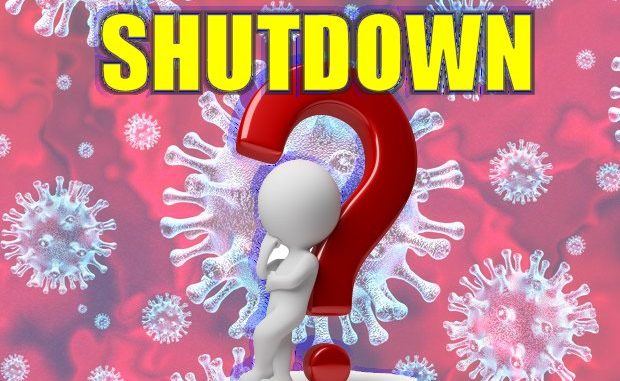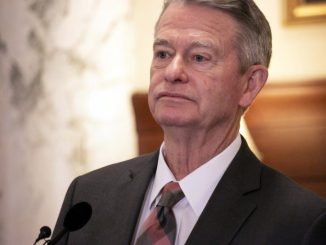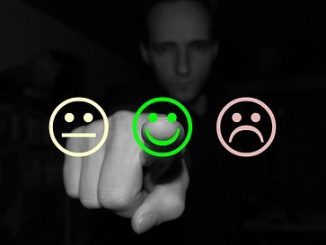
To Shutdown or Not to Shutdown? That is the Question
Mankind has seen many pandemics in our past. To name a few:
- Antonine Plague (165-180 AD)
- Plague of Justinian (541-542)
- The Black Death (1334)
- Cocolitzli epidemic (1576)
- London’s Great Plague killed 100,000 people in 1665-1666
- The Great Plague of Marseilles killed 100,000 people in 1720
- In 1771 the Moscow plague and riot claimed up to 200,000 people
- The Third Cholera Pandemic (1852-1860)
- The Third Plague Pandemic (1855)
- The Russian flu killed 1 million people from 1890 to 1891
- Typhus fever in World War 1 (1914)
- The Great Flu Epidemic (1918)
- The Asian Flu Pandemic (1957)
- The Hong Kong Flu (1968)
Man is no stranger to plagues, pestilence and pandemic. They’ve been with us since the beginning of time. Sometimes the plague comes to us through rats, lice, monkeys, bats, birds, pigs, other humans, or some other carrier. Sometimes it comes to us through our own ignorance or stupidity, such as through contaminated water supplies, improper food handling or preparation, improper sanitation, improper bathroom habits, or sexual promiscuity.
Regardless of the source of the infection certain things can be done to alleviate the rapid spread of disease: proper sanitation, proper food preparation, proper bathroom habits, proper sexual behavior and, yes, if necessary: avoiding human interaction; i.e. through quarantine or by shutting down as many human interactions as possible.
Shutting down as many human interactions produces many problems begging the question as to whether the cure is worse than the disease. The ramifications of shutting down as many human interactions as possible are many, among which are economic recession or depression through the closure of business, impediment of the transportation and distribution of food, medical supplies and other vital goods, impediment of vital services, separation of family members from each other (especially when the interaction is vital, as in the case of a sick or dying loved one), all the way up to jeopardizing national security should the military of a nation be severely affected by the disease.
In a world such as ours with the plethora of millions, no billions of human interactions each day, shutting down even one human interaction, much less the human interactions of the entire world would cause disastrous results, thus, it is understandable that a government, any government, would hesitate to invoke such an extreme measure.
To compound the problem, here in the United States, we Americans have a Constitutional right to free, peaceful assembly – especially the freedom to assemble to worship.
To restrict Americans from human interaction by shutting down business and commerce, much worse, to shut down churches and synagogues will often provoke a rebellion to such restriction – which – by the way, we are seeing.
However, for a government to do nothing could exacerbate the rapid spread of the disease and cause massive deaths.
Case in point: the 1918 Pandemic (H1N1 virus)
In the United States, it was first identified in military personnel in spring 1918. It is estimated that about 500 million people or one-third of the world’s population became infected with this virus. The number of deaths was estimated to be at least 50 million worldwide with about 675,000 occurring in the United States.[i] Our President at the time was Woodrow Wilson. It must be remembered that the United States was engaged, along with many European nations, in World War I.
The president was more concerned with the war effort than with the virus. That was one of the reasons for the rapid spread. There were no nationwide quarantine or shutdown orders. People were not only allowed to freely interact with each other, it was absolutely necessary that people interact in order to successfully prosecute the war.
Another factor that led to the rapid spread of the disease as well as the high infection and mortality rates was that we had no antibiotics, nor vaccines to immunize and treat the populous.
In other words, the disease ran virtually unchecked and untreatable.
So, if Wilson had listened to the doctors and shut down businesses, stores, places of entertainment, airlines, churches and other places of human interaction would that have helped prevent the rapid spread of the disease?
Absolutely.
However, such an action would have had devastating consequences such as the possibility of losing the war to Germany (fortunately, the German military was severely affected by the virus as well) or destroying the United States economy.
Neither of these would have been good for America.
So, let’s put this in the context of the world today. The world is more interacted today than during the time of President Wilson. World-wide transportation and world-wide trade has greatly increased far beyond what it was back then.
President Donald Trump has encouraged States to shut down non-essential (what’s non-essential???) businesses, transportation, and other human interactions.
Our economy is taking a severe hit. Billions, maybe even TRILLIONS of dollars in commerce lost. Millions of people are out of work. Many businesses are permanently closing their doors. Churches are told that they cannot assemble to worship. And, in our country, many Americans are getting “pissed off” at their Constitutional rights being restricted.
Now, while I cannot speak for other countries in the world, I am certain that they are running into the same dynamics.
We are damned if we shut-down human interaction and we are damned if we don’t. We either let the disease run its course unchecked and let the death toll rise to the millions, or we suffer socially and economically.
There are no easy answers.
I believe that President Trump and many other national leaders in other countries are doing the best that they can in trying to find a balance between checking the spread of the disease and maintaining some semblance of an economy that would survive and perhaps once again thrive after all this is over.
I can tell you this for certain: I am certainly glad that I am not in their shoes.
The views, opinions, or positions expressed by the authors and those providing comments are theirs alone, and do not necessarily reflect the views, opinions, positions of Redoubt News. Social Media, including Facebook, has greatly diminished distribution of our content to our readers’ newsfeeds and is instead promoting Main Stream Media sources. This is called ‘Shadow-banning’. Please take a moment and consider sharing this article with your friends and family. Thank you. Please support our coverage of your rights. Donate here: paypal.me/RedoubtNews







Thanks, Mr Booker, for a timely and thought provoking article…As of today, April 25th, much of the overwrought cries of doom have been dispelled, and as Mark Twain once said…”The recent reports of my death were greatly exaggerated !”….Don N is one of my dog walk friends, a nice guy, but a Joe Citizen type, little interested in Liberty issues or the latest “Crisis of the day”.. yet even he has discounted the CV drumbeat as fraud…..Domestic Enemies…Yup, here we go !…But we’ve seen a certain element who would LIKE to see societal collapse overtake our country…They would have fear, poverty, hunger and chaos run rife, not to mention erasure of individual liberty…I’d say that if not firmly rejected, this Dempanic could fill the bill…If the question is whether to shutdown or not. I’d ask back : How long will we continue to play Hamlet ?..